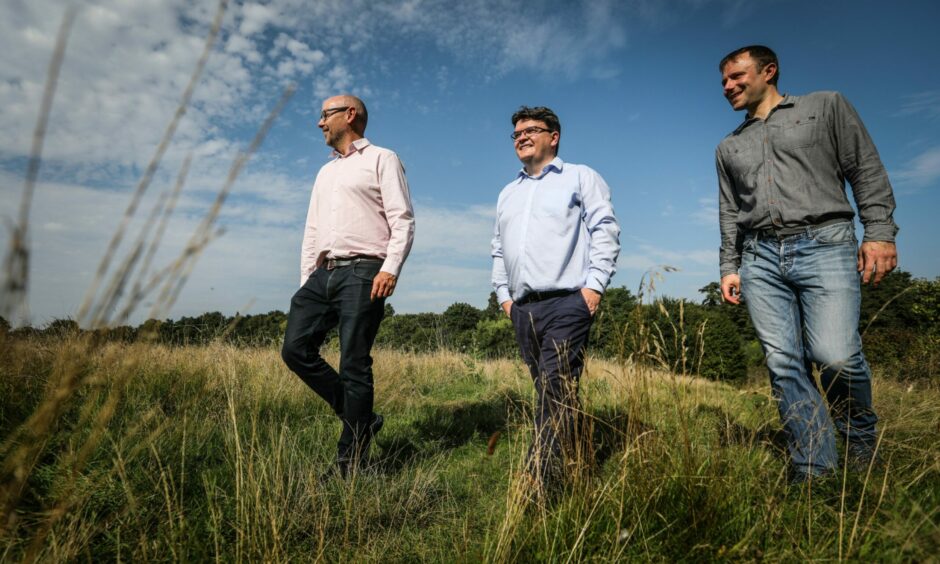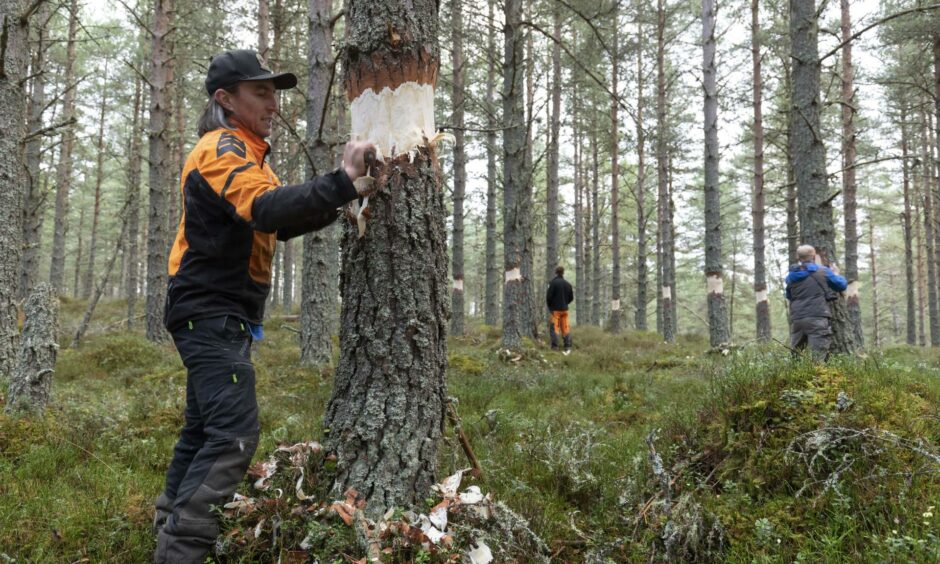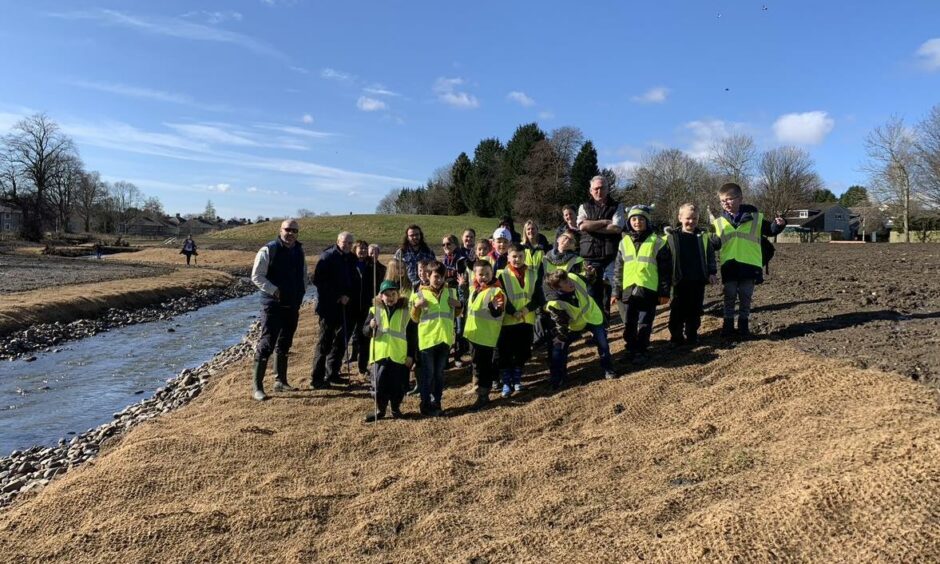Welcome to Climate Catch-up — our fortnightly roundup of environmental stories from Tayside and Fife.
For news, story ideas and tips, please contact The Courier’s environment team at transportandenvironment@thecourier.co.uk.
And don’t forget to sign up to our weekly transport and environment newsletter (sign up link under the main picture on this page).
In this edition, we share progress on a solar farm application on the outskirts of Dundee, willow planting in Fife and more.
Solar meadow approved
Plans to build a large solar farm to power the James Hutton Institute in Invergowrie have been given the thumbs up.
Both Dundee City Council and Perth & Kinross Council had separate parts of the scheme to approve because the development will straddle local authority boundaries.
Co-operative group Dundee Renewable Energy Society (Dres) are behind the plans. The group describe the plans as “low profile, low impact”.
The solar meadow will be a “relatively small” two-megawatt installation on land owned by the James Hutton Institute.
The project is expected to generate at least £10,000 annually, which will be used to support local causes through a community benefit fund.
Richard McCready, Dres chairman, said: “In finding new ways of generating energy to reduce carbon emission, this approval is a real step forward.”
A community event will take place at the Overgate centre in Dundee on Sunday April 24 for people who want to find out more.
Perth nature conference
Perth starred in the international Nature of Cities Festival, which took place this week.
The virtual conference shone a light on Perth’s ambitions to become the most sustainable small city in Europe.
The Fair City featured in the workshop ‘Transforming Perth, Scotland: The Art of the Possible’.
The festival aimed to promote solutions on how to build cities that are better for nature and people.
Initiatives aimed at making Perth more sustainable include a proposed locally owned, renewable power grid.
Cairngorms restorations
More than 7,000 broadleaf seedlings have been germinated, 526 hectares of peatland restored and invasive conifers removed as part of a 200-year vision for the Cairngorms National Park.
Cairngorms Connect is the largest project of its kind in the UK, which launched in 2018.
The scheme will also see native woodland doubled.
A report into the first few years of the project was published last week.
It highlighted the scale of the work. Among the 7,000 broadleaf seedlings were birch, aspen and alder.
With support from the Cairngorms National Park Authority Peatland Action team, more than 526 hectares have already been restored.
Cairngorms Connect is a partnership of Wildland Limited, RSPB Scotland, NatureScot and Forestry and Land Scotland.
Bike maintenance event
Helping drive down carbon emissions by promoting bike use, Dundee Cycle Hub will host an information and maintenance event at Slessor Gardens on April 9.
Cyclists will be able to get their bike checked over at the free event.
There will be a focus on improving access to bikes for young people, such as free led rides and bike track skills sessions.
Willow planting at Lyne Burn
Little helpers from the 26th Fife Scout Group and Cub Pack of the 44th Fife Scouts got their hands dirty to plant 1,000 willows along the banks of Lyne Burn at Rex Park, Dunfermline.
The section of Lyne Burn has recently been restored from an artificially straightened channel to natural meanders.
The planting will provide a new habitat for wildlife in the area.
More volunteer events are scheduled in the coming months. Information will be posted on the Fife Coast and Countryside Trust’s social media platforms.













